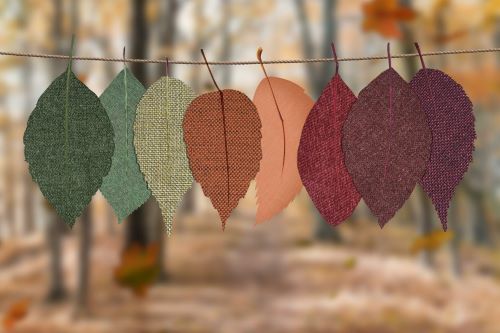
Sourcing Natural Textiles In India

The story of each textile in India starts with the farming of its fiber. In this blog, we bring you closer to the roots of Indian traditional textiles and fibers. It's as important to know about the source as it is the process of production. At Anuprerna, we uphold a commitment to sustainability, ensuring that all our fibers are sourced from reliable places. Thus, we will share the story of where it all begins for each of our natural textiles - a variety of silks, cotton, and Khadi - shedding light on the journey from farm to fabric
SILK PRODUCTION IN INDIA:
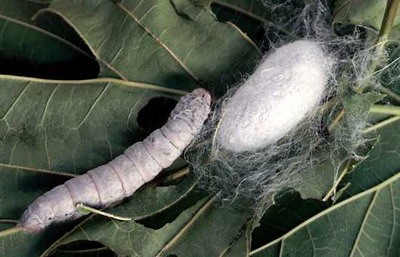
Sericulture is an agro-based industry. It involves the rearing of silkworms for the production of raw silk, which is the yarn obtained out of cocoons spun by certain species of insects.
"Sericulture business provides approximately 8.25 million employment in rural and semi-urban areas in India"
India is the second-largest producer of silk around the world. It majorly produces four varieties of silk: Mulberry, Tussar, Muga and Eri. Among four varieties of silk, almost 71% of silk produced is Mulberry. Karnataka, Andhra Pradesh, West Bengal, and Tamil Nadu are the major silk producing states in the country.
North East has the distinctive distinction of being the sole region manufacturing four kinds of silk-like Mulberry, Oak Tasar, Muga and Eri.
List of district wise Sericulture farms of West Bengal.
List of district wise Sericulture farms and reeling unit of Assam.
At Anuprerna, we source our varieties of silk from 4 Indian states which are as follows-
-West Bengal For Matka Silk
-Karnataka For Mulberry Silk
-Jharkhand For Wild Silk Like Tussar, Ghicha, Ketya
-Assam for Muga
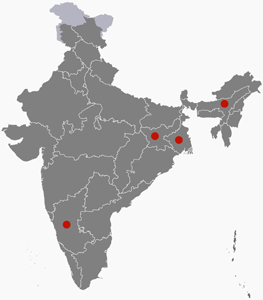
COTTON PRODUCTION IN INDIA:
India is the 2nd largest cotton-producing and the largest cotton exporting country. The Indian cotton fabric production is about 6,188,000 tons per year.
"Cotton provides direct livelihood to 6 million farmers and about 40-50 million people are employed in the cotton trade and its processing in India"
There are ten major cotton-growing states which are divided into three zones, viz. north zone, central zone and south zone.
-The North Zone consists of Punjab, Haryana, and Rajasthan.
-The Central Zone includes Madhya Pradesh, Maharashtra and Gujarat.
-The South Zone comprises Andhra Pradesh, Telangana, Karnataka and Tamil Nadu.
Besides these ten States, cotton cultivation is also cultivated in Orissa, Uttar Pradesh, West Bengal & Tripura.
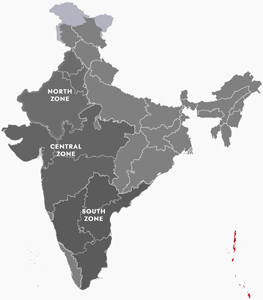
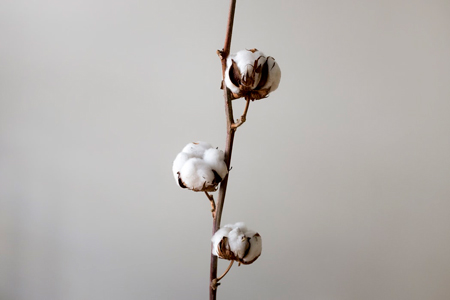
Cotton is categorised into three broad categories, based on the length of the fibre:
1) Long Staple- grown in Punjab, Haryana, Maharashtra, Tamil Nadu, Madhya Pradesh, Gujarat and Andhra Pradesh.
2) Medium Staple- grown in Rajasthan, Punjab, Tamil Nadu, Madhya Pradesh, Uttar Pradesh, Karnataka and Maharashtra.
3) Short Staple Cotton- grown in U.P., Andhra Pradesh, Rajasthan, Haryana and Punjab.
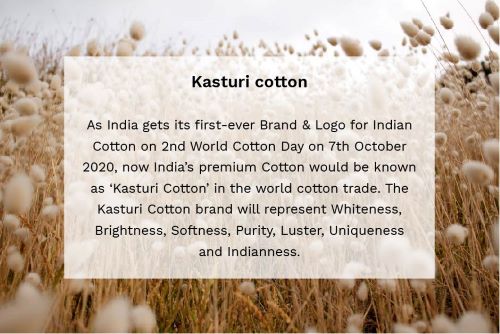
Read more about the process of Cotton Production in India
Read more about the rise in demand for Organic Cotton in India
At Anuprerna, we primarily source our Cotton from the states of Tamil Nadu & Andhra Pradesh.
REGENERATIVE AGRICULTURE - FOR SUSTAINABLE TEXTILES
Regenerative agriculture is a conservation and rehabilitation approach to food and farming systems.
'Regenerative Production Landscape: People, Nature, Economy', the landscape programme aims to promote regenerative and restorative farming principles for cotton, and also food crops. It hopes to develop business models that work on conserving natural resources such as soil, water, biodiversity, as well as fairly rewarding the smallholder farmers who are lowest in the supply chain.
The Laudes Foundation, the IDH Sustainable Trade Initiative (IDH) and WWF India have launched a regenerative farming programme in the Indian state of Madhya Pradesh.
Read more here.
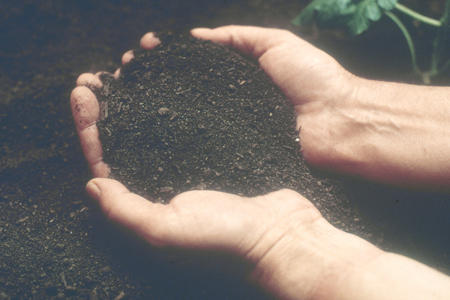
KHADI PRODUCTION IN INDIA:
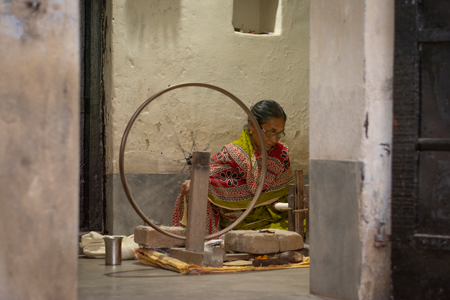
Khadi basically refers to the Indian fabric which has been handwoven specifically using handspun yarn. It is produced in various parts of India, depending upon its raw materials.
While the silk variety comes from West Bengal, Bihar, Odisha and North Eastern states, the cotton variety comes from Andhra Pradesh, Uttar Pradesh, Bihar and West Bengal. Haryana, Himachal Pradesh, Jammu & Kashmir and Karnataka are known for woollen variety.
Our Khadi is spun in West Bengal, Bihar & Tamil Nadu.
Whereas Organic Khadi Fiber is produced in Tamil Nadu & then handspun in Bengal.
related questions
Which place is known as textile city of India?
arrow_drop_downThe city of Surat, located in the western Indian state of Gujarat, is often referred to as the "Textile City of India." Surat has a long-standing reputation for its thriving textile industry, which includes the production of a wide range of fabrics such as silk, cotton, synthetic fibers, and more.
What is the fabric sourcing process in textile?
arrow_drop_downThe sourcing process in textiles involves identifying, selecting, and procuring raw materials, such as fibers, yarns, dyes, chemicals, and other materials needed for textile production, from suppliers or manufacturers.
How many types of textiles are there in India?
arrow_drop_downThere are many types of textiles in India, but broadly they can be categorized into traditional handloom textiles, powerloom textiles, and modern textiles.
What is the oldest textile in India?
arrow_drop_downThe oldest known textile tradition in India is believed to be the art of cotton cultivation and weaving, which dates back to the ancient Indus Valley Civilization, around 4500 BCE to 1500 BCE.
More Blogs
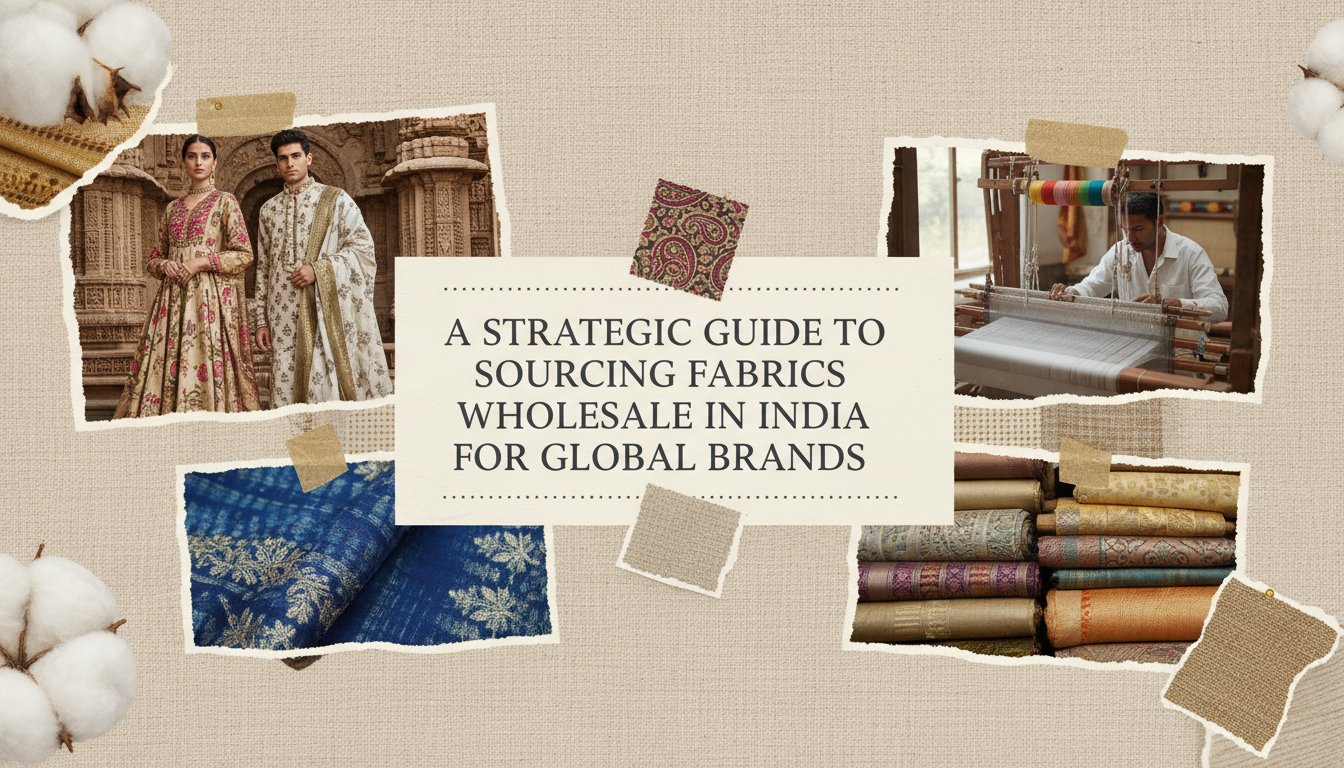
a strategic guide to sourcing fabrics wholesale in india for global brands

ethical supply chains: the sustainability impact of khaadi online shopping
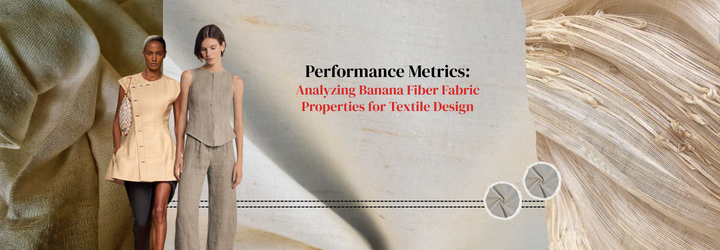
performance metrics: analyzing banana fiber fabric properties for textile design
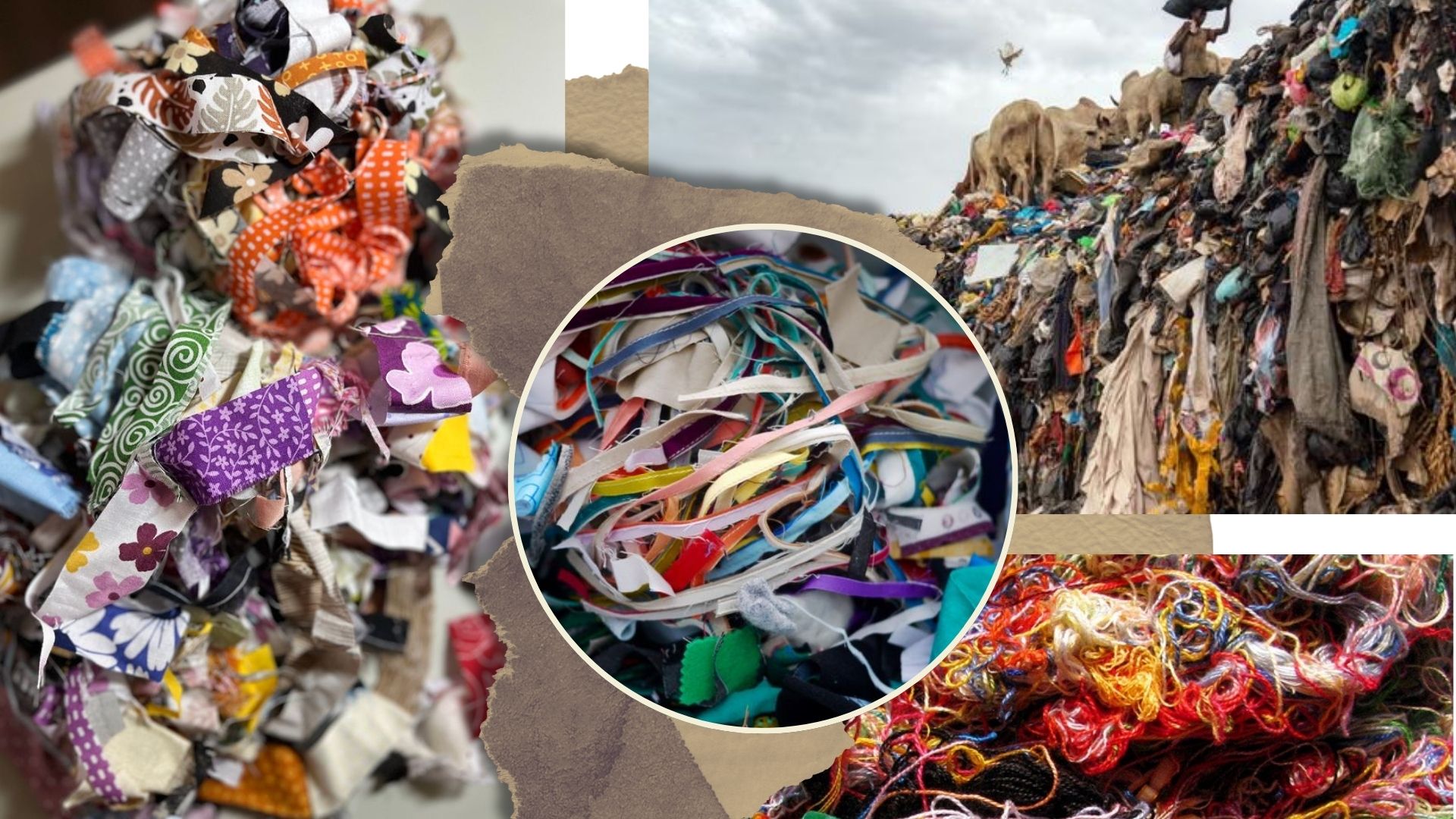
the scrap fabric solution, from clutter to creation

the art of sustainable recyclability
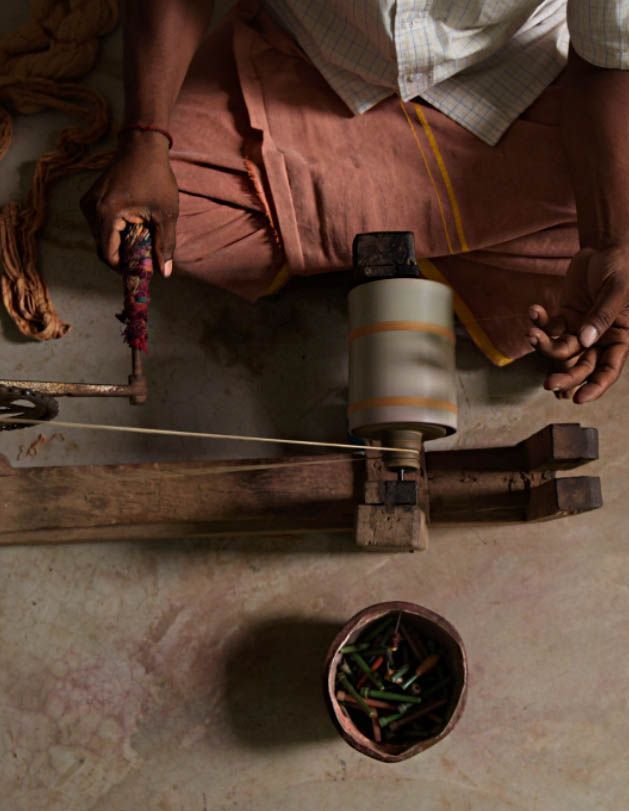
indian handloom in contemporary world






